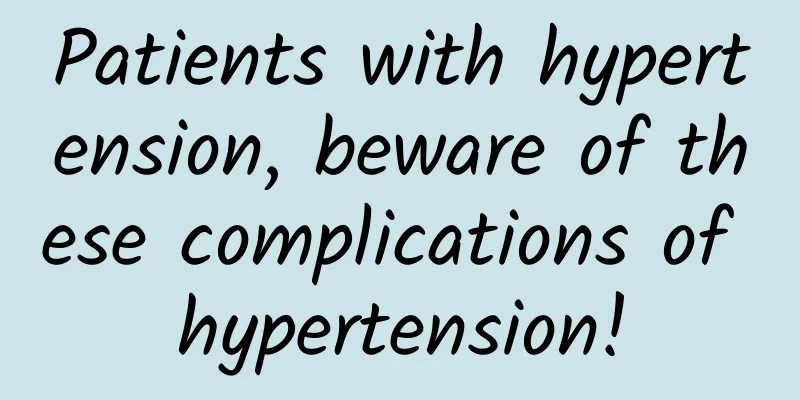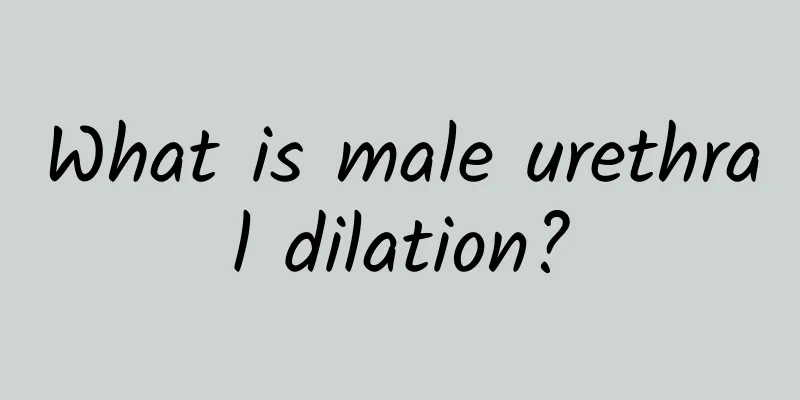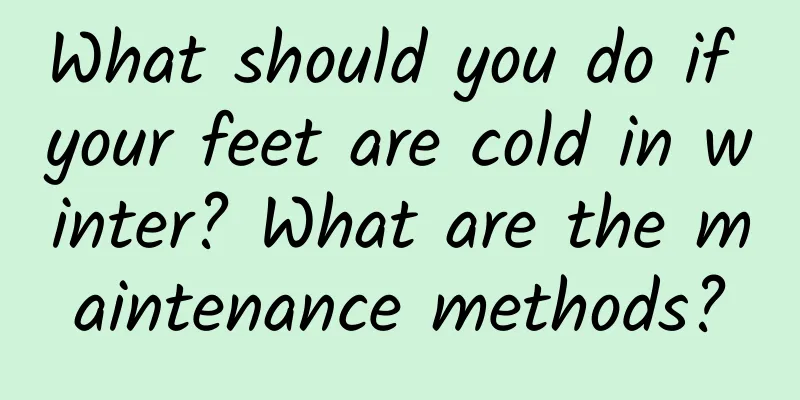Patients with hypertension, beware of these complications of hypertension!

|
The harm of high blood pressure is very great. I am afraid that many people do not know that the biggest harm of high blood pressure is not the increase in blood pressure, but the decrease in body immunity. Therefore, in daily life, to prevent high blood pressure, you must keep your body and mind happy. So, in clinical practice, what are the complications of high blood pressure? Categories 1. Heart complications such as left ventricular hypertrophy, angina pectoris, myocardial infarction, and heart failure 2. Stroke such as hemorrhagic stroke, ischemic stroke, hypertensive encephalopathy 3. Arteries such as arteriosclerosis and aortic dissection 4. Hypertensive renal damage such as slowly progressive arterial nephrosclerosis, malignant arterial nephrosclerosis, and chronic renal failure 5. Fundus such as retinal artery sclerosis and fundus changes Slowly progressive small-artery nephrosclerosis refers to benign hypertension lasting 5-10 years, which begins with lesions in the small renal arteries, followed by renal parenchymal damage; malignant small-artery nephrosclerosis refers to renal damage caused by malignant hypertension, including lesions in the small renal arteries and renal parenchymal damage. Symptomatic care for complications of hypertension 1. Severe headache accompanied by nausea and vomiting is a symptom of sudden increase in blood pressure or hypertensive encephalopathy. The patient should be allowed to rest in bed immediately, and changes in blood pressure, pulse, heart rate, and heart rhythm should be observed. Contact a doctor as soon as possible and take sedative and antihypertensive measures quickly. 2. Dyspnea and cyanosis are often manifestations of left heart failure caused by hypertensive heart disease. Immediately place the patient in a semi-recumbent position and inhale oxygen. The humidifier bottle for oxygen inhalation should be replaced with 20% to 30% ethanol, and cardiotonic drugs should be used according to the doctor's instructions. 3. If there is palpitation, the pulse, heart rate and rhythm changes should be carefully observed and recorded. Comfort the patient, let him/her rest in bed, eliminate tension, and the palpitations will generally be relieved quickly. 4. Edema may occur in late-stage primary hypertension accompanied by heart and kidney failure. During nursing, attention should be paid to strictly record the amount of water intake and output so as to measure the amount for the person. Limit sodium salt in the diet (no more than 3 grams of salt per day), rest in bed, raise the affected limb, and pay attention to protecting the skin to prevent the occurrence of bedsores. 5. Late-stage hypertension can easily cause cerebrovascular accidents, coma and paralysis. For such patients, attention should be paid to safety care to prevent falling out of bed, suffocation, limb burns, etc. If the condition is serious, the patient should be transferred to the hospital for treatment. |
<<: Drinking more water every day actually produced such a miracle!
>>: How to treat phimosis? Treatment of phimosis
Recommend
Boys' nipples
Swollen nipples usually occur in women, but some ...
What is the normal length of a male penis?
I believe everyone knows the importance of the pe...
Fat particles on the penis
If you find fat particles growing in your penis, ...
What is the cause of the white pimples under the glans scalp?
White pimples appear under the glans, and you sho...
How can men effectively prevent cystitis?
The incidence of male cystitis is relatively high...
How to remove freckles with almonds, discover the efficacy of almonds in removing freckles
Almonds are a kind of nut with high nutritional v...
How can men improve their sexual ability through massage?
Sexual intercourse is an indispensable behavior i...
What causes eyebrow loss?
Eyebrows are the hair above the eyes that protect...
A man with a mole on his eyebrow
The reason why people have all kinds of moles on ...
Why do I ejaculate while sleeping?
Ejaculation during sleep at night is medically ca...
Why is the male glans red and swollen?
If men want to have a high-quality sex life, the ...
Can a short penis be cured?
The penis is the male reproductive organ. It play...
Vulvar vascular bulge
The penis of men is the most vulnerable part of t...
How to reduce a man's big belly
Nowadays, people's living standards have impr...
It went soft before I ejaculated
If a man becomes soft before ejaculation, it may ...









